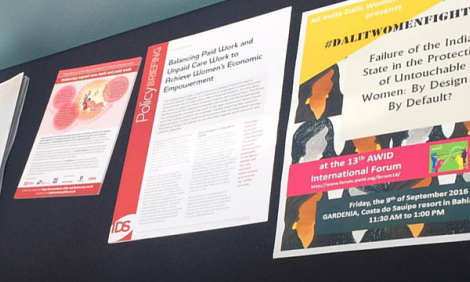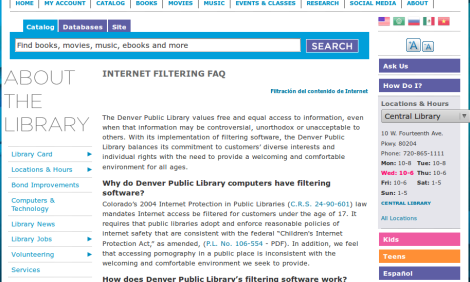
Feminist talk
We can't do it alone: Connections at AWID 2016
In such massive gatherings often the plenary session rings a bit empty or hollow, like background noise to other more real conversations taking place. AWID was different in that its massive burst of energy and radical politics was most often from the plenary sessions. This article explores the sessions at AWID held by Dalit women, Romani women, Rojava/Kobane women, and others.

Feminist talk
New mobile app for sexuality research pulled back over privacy concerns
Melissa Ditmore reflects on release and subsequent pulling back of new application designed to collect data on sexual activity by Kinsey Institute in the USA. She outlines privacy concerns raised and how these holes can jeopardize users data. She also makes a make a case how this app once privacy gaps are fixed can assist to document unwanted and often under-reported sexual experiences, such as…
Feminist talk
Rape and the courts: Going online isn't really justice
Savannah Dietrich was raped. The rapists took photographs and circulated them at her school - but in a plea bargain, she was told that she was not allowed to tell people what had happened. She posted the names of her attackers on social media sites, risking a jail sentence and a fine. But is this justice?

Feminist talk
USA: EROTICS responses to the Denver library - a fictional exchange on real foundations
Tapping the groundbreaking findings of the US EROTICS report that investigated the mandated internet filtering in publicly-funded libraries, Flavia Fascendini leads a fictional dialogue with the Denver Public Library FAQ on content regulation.

Publication
EROTICS: Exploratory research on sexuality and the internet - summary report
What is the value of the internet in the exercise of sexual rights? From 2008 to 2010, the EROTICS research sought to answer this question, aiming to bridge the gap between policy and legislative measures that regulate content and practice on the internet, and the actual lived practices, experiences and concerns of internet users in the exercise of their sexual rights. The summary report provides…

In depth
Birthing Choices and Challenges—Understanding the new reproductive technologies
Kim Surkan is a gender studies professor. She recently gave birth to her son who was conceived through in-vitro fertilization. GenderIT.org writer, Mavic Cabrera-Balleza speaks with Kim about some controversies surrounding the use of new reproductive technologies and genetic selection. They also discuss the role of the information and communication technologies in new reproductive practices…
Publication
ICTs and Gender - Working Party on the Information Economy
This document provides an overview of the gender distribution of ICT and ICT-related employment in OECD countries, and ICT employment patterns are contrasted with overall employment to highlight how different ICT employment patterns are. The document then focuses on participation in ICT-related education and training, and differences in ICT access and use by gender.
Publication
Access Denied: The Impact of Internet Filtering Software on the Lesbian and Gay [version 2.0.]
A survey of how internet filtering software, and ratings systems affect the lesbian and gay community. "Access Denied" contains sections analysing the legal, political and social implications of enforced invisibility on the web. It also includes testimonials from lesbian, gay, bisexual and transgender persons, who are those most directly affected by the lack of access to important information…
Publication
Berlin Declaration: Women Claiming the Information Society
The declaration drafted by the participants in the European/North American Regional Conference on Gender and the World Summit on the Information Society (WSIS), assembled in Berlin on 11 September 2005.
Publication
Internet Filter Effectiveness: Testing Over and Underinclusive Blocking Decisions of Four Popular Filters
The paper assesses the effectiveness of popular filtering programs: CYBERsitter, CyberPatrol, NetNanny, and SurfWatch. The findings of the study suggest that current support for filtering software should be reconsidered.




